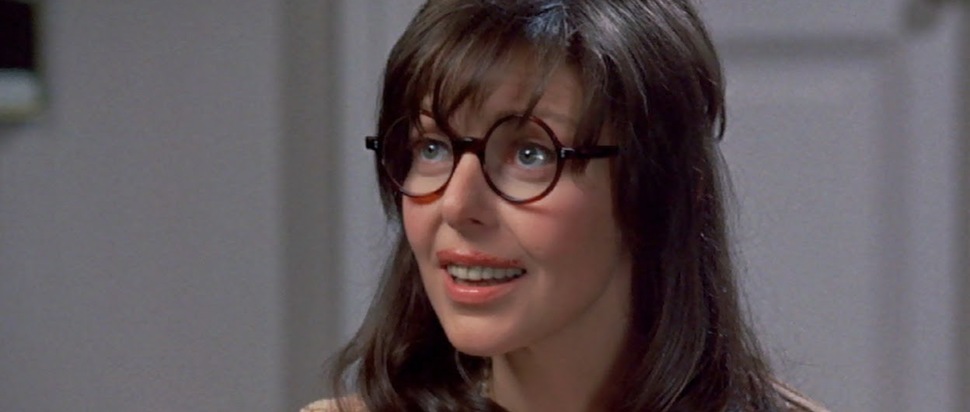May Ya!: In praise of Elaine May
The four feature films by Elaine May are among the finest in American cinema, but the poor distribution of the first three and financial failure of the fourth means they're still little seen. Praise be then for GFF's heaven-sent Elaine May retrospective
Elaine May’s reputation has travelled further than her films. She has been hailed as a key influence by a whole generation of American comedians – including Steve Martin, Lily Tomlin and Woody Allen – but her work has been allowed to fall out of circulation and she's been largely neglected by Hollywood for over 30 years. The reason for that absence from filmmaking lies in another reputation that casts a long shadow. May’s long-delayed and over-budget comedy Ishtar (1987) was widely derided as a disaster before it even hit cinema screens and it quickly became the go-to title for hacks discussing the worst movies ever made. Its failure marked an abrupt and unjust end to a thrillingly unconventional directorial career.
Watching Ishtar now, it’s hard to understand how this goofy and frequently inspired buddy comedy could have once inspired such opprobrium, but as May noted in 2012, “If all of the people who hate Ishtar had seen it, I would be a rich woman today.” The film seemed a cursed project from the start, but behind-the-scenes drama was par for the course by the time May came to Ishtar. Two of her first three pictures led to long and acrimonious battles with Paramount, with the studio excising more than an hour from her debut A New Leaf (1971) before its release and then dumping a hastily assembled version of Mikey & Nicky (1976) in a handful of cinemas following a two-year editing period. A brilliant improviser who had revolutionised sketch comedy with Mike Nichols in the 1960s, May brought that same improvisatory spirit to her filmmaking; the freewheeling, exploratory approach that made her such a headache for producers is what gives her films their unique rhythm and energy.
May’s comedies are hysterically funny, but they are also distinguished by their bitter undertones, jagged edges and uncomfortable pauses. “The nice thing is to make an audience laugh and laugh and laugh, and shudder later,” she said in a 1961 interview, and she remained true to this credo throughout her career. Her films all hinge on acts of selfishness and betrayal within a relationship.
In A New Leaf, a bankrupt playboy (Walter Matthau) plans to marry and murder a socially inept heiress (played adorably by May), and in The Heartbreak Kid (1972) a solipsistic newlywed (Charles Grodin) ditches his bride (Jeannie Berlin, May’s daughter) for the glamorous blonde (Cybill Shepherd) he meets on their honeymoon. A big success upon its release, earning critical acclaim and Oscar nominations, The Heartbreak Kid should be regarded as one of the canonical American comedies but rights issues have seen it disappear from the public’s consciousness. It’s a cynical screwball caper that is as excruciating as it is funny, a masterclass in sustained discomfort that mercilessly exposes its protagonist’s hollowness.
Although he was created by Neil Simon, The Heartbreak Kid’s protagonist Lenny is an archetypal May man. Across the course of her four features, we see a series of male characters driven by an unshakeable sense of entitlement and a complete lack of self-awareness, and her films lay bare their insecurity, arrogance, deceitfulness and selfishness. Few filmmakers have consistently skewered the male ego so incisively, and after subverting the romantic comedy in her first two films, May switched her focus to male friendship in Mikey & Nicky and Ishtar, which feel like two sides of the same coin. Both are stories about friends finding their loyalty to each other being tested, with one film playing it as tragedy and the other as farce. Mikey & Nicky is May’s darkest film and arguably her greatest achievement, the film in which she removed the buffer of comedy to reveal the pain, resentment and sadness underneath.
A few years after its botched original release, May’s re-edited version of Mikey & Nicky was hailed by critics as one of the great films of the 1970s, and its reputation continues to grow with every passing year. All of May’s films have needed rescuing in some way – from compromised edits, from legal entanglements, from poisonous word-of-mouth – but with ongoing retrospectives and restorations, it feels like the world is gradually coming around to her genius. It’s a tragedy that we don’t have more Elaine May films, and it's enraging that her career was brutally curtailed for the kind of maverick behaviour that male auteurs are often lionised for, but we do have four extraordinary films that couldn’t have been made by anybody else. We need to take every opportunity to celebrate them.
May Days: The Films of Elaine May screen at Glasgow Film Festival
A New Leaf, Mon 25 Feb, GFT, 1pm
The Heartbreak Kid, Tue 26 Feb, GFT, 1pm
Mikey and Nicky, Wed 27 Feb, GFT, 1.15pm
Ishtar, Thu 28 Feb, GFT, 1pm
